altruism
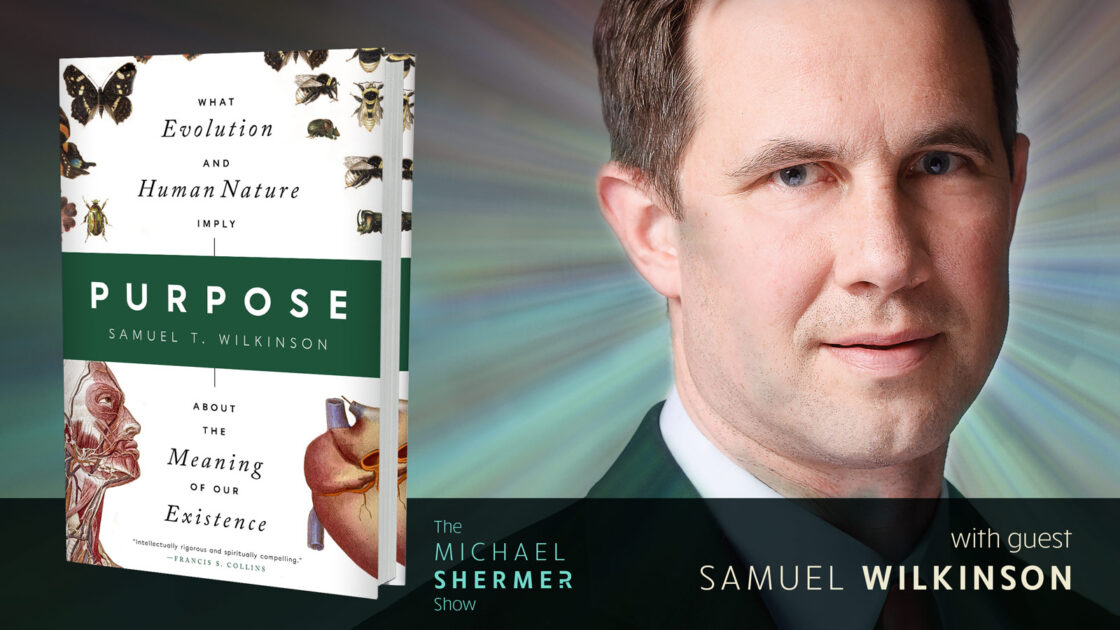
Shermer and Wilkinson discuss: • evolution: random chance or guided process? • selfishness and altruism • aggression and cooperation • inner demons and better angels • love and lust • free will and determinism • the good life and the good society • empirical truths, mythic truths, religious truths, pragmatic truths • Is there a cosmic courthouse where evil will be corrected in the next life? • theodicy and the problem of evil: Why do bad things happen to good…
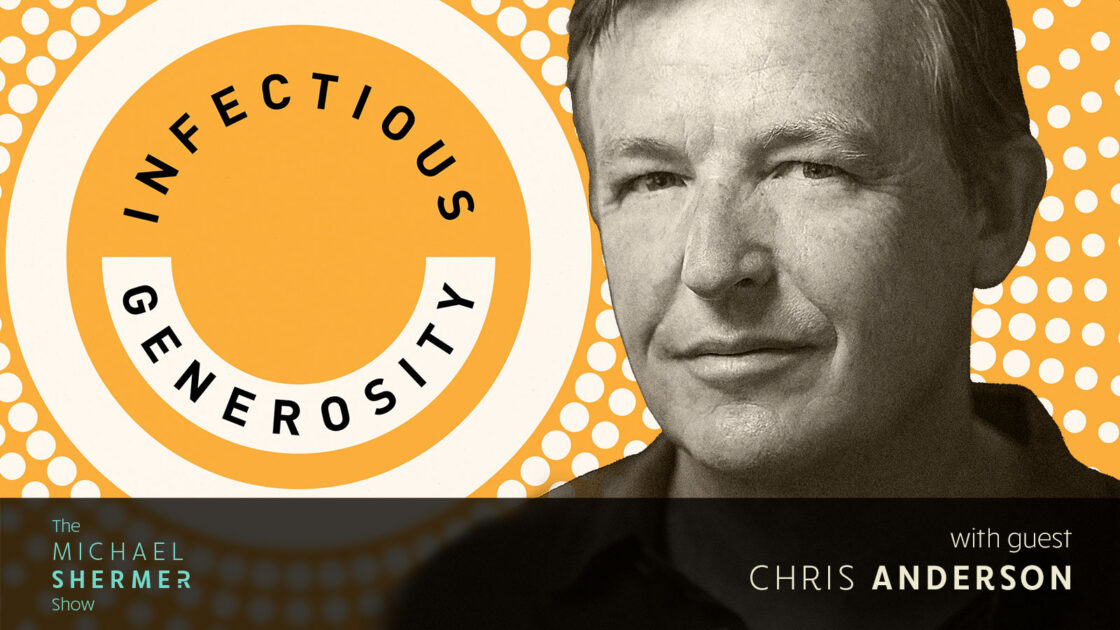
Shermer and Anderson discuss: what makes TED successful • power laws and giving • charging vs. giving away • altruism • being good without God • billionaires • how the average person can participate • public vs. private solutions to social problems • donor fatigue.
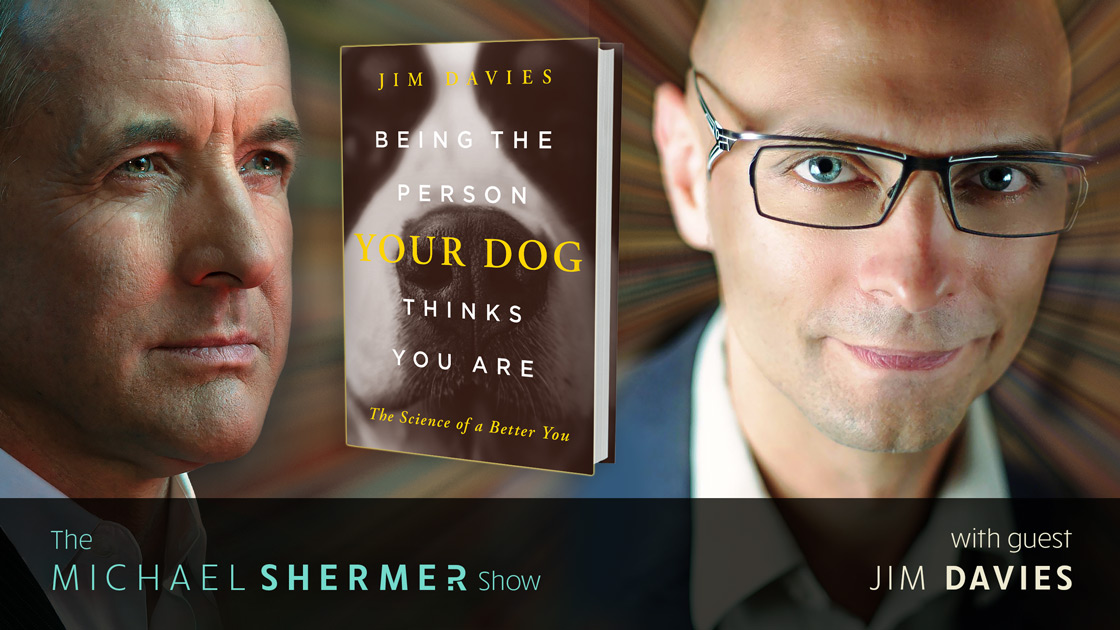
Shermer and Davies discuss: • an operational definition of the “good life” or “happiness” or “well being” • utilitarianism vs. deontology vs. virtue ethics • effective altruism • marriage and children • objective moral values • Do we have a moral obligation to help those who cannot help themselves? • Does America have a moral obligation to help oppressed peoples in dictatorships? • immigration • abortion • the welfare state • prostitution • reparations.
In episode 214, Michael Shermer speaks Tom Nichols about his book Our Own Worst Enemy: The Assault From Within on Modern Democracy. PLUS, don’t miss our digital subscription sale: $14.99 for 7 issues, until October 9, 2021!

Democracy is in trouble. Why? In episode 214, Michael Shermer speaks with Tom Nichols about his book Our Own Worst Enemy: The Assault From Within on Modern Democracy challenges the current depictions of the rise of illiberal and anti-democratic movements in the United States and elsewhere, placing on the people themselves, the growth of unchecked narcissism, rising standards of living, global peace, and a resistance to change.
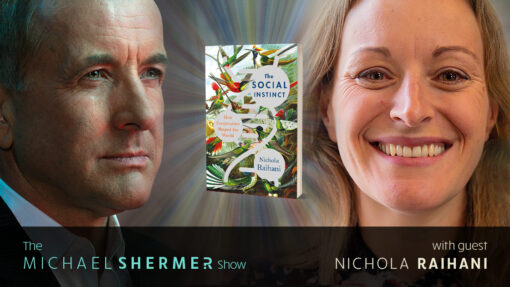
Michael Shermer and Nichola Raihani discuss: Darwin’s Dictum • the origins of empathy and altruism • why we don’t need “divine command” theory • philosophical ethical systems • evolutionary origins of cooperation • self-domestication • bonobos vs. chimpanzees vs. humans • evolution of religion • collective action problems and how they are solved • the nature of human nature • individual selection vs. group selection.
In episode 206, Michael Shermer speaks with Nichola Raihani about where and how collaborative behavior emerges throughout the animal kingdom, and what problems it solves, based on her book The Social Instinct: How Cooperation Shaped the World.

In episode 197, Michael speaks with entrepreneur, writer, and activist Yaron Brook about Ayn Rand, Atlas Shrugged, Objectivism; individualism vs. collectivism; the nature of human nature; altruism, cooperation, reparations, and charity; the starting point of morality and the foundation of ethics; collective action problems and how they are best solved; our moral obligation to help those who cannot help themselves; the Is-Ought problem of determining right and wrong; reason and empiricism; immigration, abortion, foreign wars, the welfare state, and terrorism.
In episode 197, Michael speaks with entrepreneur, writer, and activist Yaron Brook about Ayn Rand, Atlas Shrugged, Objectivism; individualism vs. collectivism; the nature of human nature; altruism, cooperation, reparations, and charity; the starting point of morality and the foundation of ethics; collective action problems and how they are best solved; our moral obligation to help those who cannot help themselves; the Is-Ought problem of determining right and wrong; reason and empiricism; immigration, abortion, foreign wars, the welfare state, and terrorism.
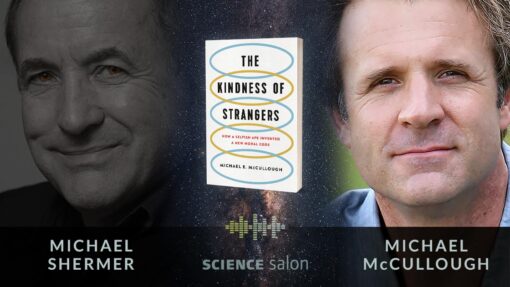
In this sweeping psychological history of human goodness — from the foundations of evolution to the modern political and social challenges humanity is now facing — psychologist Michael McCullough answers a fundamental question: How did humans, a species of self-centered apes, come to care about others?
In Science Salon podcast # 133, Michael Shermer speaks with Michael E. McCullough about his new book: The Kindness of Strangers: How a Selfish Ape Invented a New Moral Code.
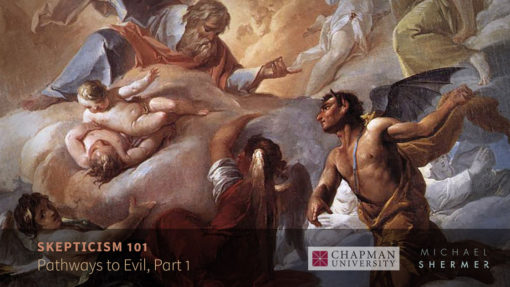
In his Skepticism 101 lecture on Pathways to Evil (Part 1), Dr. Michael Shermer considers the nature of evil in his attempt to answer the question of how you can get normal civilized, educated, and intelligent people to commit murder and even genocide.
In his lecture on Pathways to Evil (Part 1), Dr. Michael Shermer considers the nature of evil in his attempt to answer the question of how you can get normal civilized, educated, and intelligent people to commit murder and even genocide. PLUS, this weekend only, Skeptic magazine back issues (in print or digital formats) are on sale for only 99 cents each!
In Science Salon # 93 Michael Shermer speaks with evolutionary psychology professor Geoffrey Miller about his book: Virtue Signaling: Essays on Darwinian Politics and Free Speech. Plus, Michel Jacques Gagné examines the reasons shocking events like the Kennedy assassination give rise to conspiracy myths.
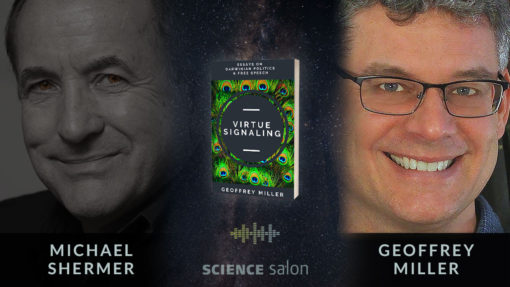
Shermer speaks with the polymathic polyamorous sapiosexual classically liberal evolutionary psychologist Geoffrey Miller about virtue signaling and why we all do it, how it works, why it’s not a bad thing, how it became a derogatory political meme, the role of virtue signaling in the evolution of the moral sentiments, and more…
If the human instinct to survive and reproduce is selfish, why do people engage in self-sacrifice, and even develop ideas like virtue and shame to justify that altruism? In this lecture, Christopher Boehm offers an elegant new theory that traces the development of altruism and group social control over 6 million years.
In this week’s eSkeptic, our regular contributor Kenneth Krause reviews the latest research on altruism, most notably that of primate research in controlled experiments in which both monkeys and apes are given choices to cooperate or compete against game partners in exchange scenarios, with implications for human research in this area.

















